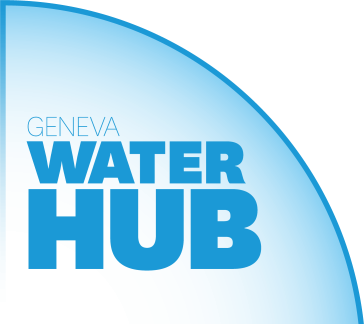
Public Panel - Conflicts over Water, Land and Food: Prevention and Responses
Multi-faceted policies and practices that combine approaches from development, peacebuilding and human rights in a complementary and mutually reinforcing way present potential for preventing both structural and direct violence. This event will discuss the potential of land, food and water as instruments of peace in preventing conflicts and building peace in emergency situations.
18:00-19:30
World Meteorological Organization (WMO)
Avenue de la Paix 7bis, Geneva.
2nd floor, De Mello Room Auditorium (access map).
Video of the event:
Full script of the event:
Pictures of the event:
As part of the Geneva Peace Week, the following orgranisations are involved in the organisation of this event:
The Geneva Water Hub
The Quaker United Nations Office (QUNO)
The UN Food and Agriculture Organisation (FAO)
The UN High Commissioner for Refugees (UNHCR)
Chair
Ms Florence Foster
Representative for Peace and Disarmament, Quaker United Nations Office (QUNO)
Florence specializes in displacement and conflict analysis, with an increasing emphasis on disarmament, mediation and conflict transformation. She began her career at the Global Protection Cluster and the International Service for Human Rights in Geneva, before moving on to focus on West African conflict dynamics at the Internal Displacement Monitoring Centre, with work in Côte d’Ivoire and Mali. Through her latest roles as Programme Manager at the Fondation Suisse de Déminage and Finn Church Aid, Florence led mediation and armed violence reduction initiatives in the Central African Republic.
Speakers
Mr Murray Burt
Senior WASH Officer at Global level, United Nations High Commissioner for Refugees (UNHCR)
Murray is a chartered civil and environmental engineer with over twenty years’ experience working with United Nations, commercial engineering consultancies and non-governmental organisations in Europe, Middle East, Africa, Asia and Pacific. He focuses on WASH policy and strategy development and implementation, lead research and innovation in WASH, and supports the technical assistance to UNHCR WASH staff. He has extensive humanitarian experience responding to multiple refugee emergencies, natural disasters and conflict situations across the globe. He has worked for UNHCR since 2012.
Mr Julius Jackson
Technical Officer (Protracted Crises) UN Food and Agriculture Organisation (FAO), Rome.
Julius has held a variety of positions with FAO since 2002, including managing large-scale emergency and rehabilitation programmes in Pakistan and the North Caucasus. Between 2013-2015, with the Committee on World Food Security, he coordinated a global policy process to develop a framework for action for food security and nutrition in protracted crises. Under FAO’s Strategic Programme on Resilience he works on conflict-affected contexts, with a particular interest in how building resilience and supporting livelihoods relates to sustaining peace. He holds a BSc in politics and an MA in international conflict analysis.
Ms Nora Meier
Consultant, Quaker United Nations Office (QUNO)/UN Food and Agriculture Organisation (FAO).
Nora is doing research on the role of farmers’ seed systems in sustaining peace with an emphasis on social cohesion as a pathway to positive local collective action. She has previously worked for the Quaker United Nations Office (QUNO) in Geneva as the program assistant on food and sustainability, focusing on small-scale farmers and agricultural biodiversity. She holds a B.A. in Political Science and a Master in Public Administration (Global Leadership and Management).
Mr Michael Talhami
Urban Adviser on Water and Habitat, International Committee of the Red Cross (ICRC).
Michael focuses on urban policy formation that helps guide humanitarian programming in support of helping utilities to ensure operational continuity in service provision during times of crises. Previously Michael was the Regional Water and Habitat Adviser for the Middle East, where he supported ICRC`s programs in Syria, Iraq, Lebanon, Palestine, Jordan and Yemen. Before the ICRC, he worked in the Middle East as a consultant for several development agencies and UNDP as a policy adviser addressing the management and governance of water resources problems in conflict settings.
Dr Mara Tignino
Senior Lecturer and Coordinator of the Platform for International Water Law/Geneva Water Hub, University of Geneva.
Mara teaches international water law and environmental law at the University of Geneva. Her research interests include international humanitarian law, human rights, and dispute settlement. Mara acts as an expert and legal adviser for States, international and non-governmental organizations. In September 2017, she has been awarded with the prize “Women Peacebuilders for Water” by the Milan Centre for Food Law and Policy. She is a member of the Coordinating Committee of the Interest Group on Business and Human Rights of the European Society of International Law.
The official poster of this Panel is available below:
More information about the 2017 edition of the Geneva Peace Week in the flyer below:
